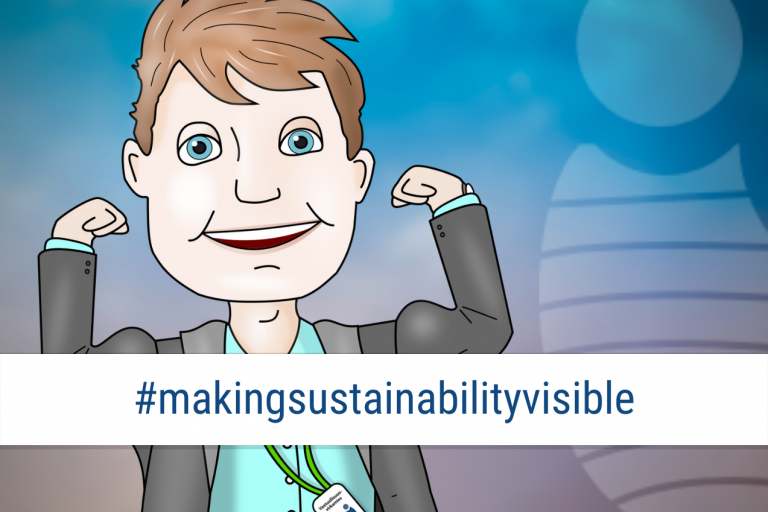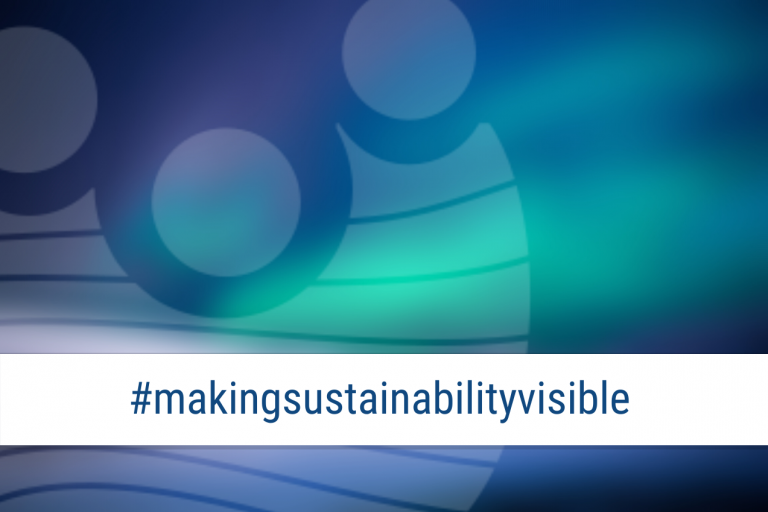 Anticipating events in the operating environment and changes in legislation, influencing Finnish society and ensuring that the activities of the authorities are based on responsibility are also critical factors in a world tried by the coronavirus crisis. Reporting on responsibility expands the knowledge base and assists management.
Anticipating events in the operating environment and changes in legislation, influencing Finnish society and ensuring that the activities of the authorities are based on responsibility are also critical factors in a world tried by the coronavirus crisis. Reporting on responsibility expands the knowledge base and assists management.
The State Treasury has updated the content of its website, and the Services page now includes concrete steps for promoting responsibility efforts within the central government. The long-term objective is to make responsibility reporting a fixed part of the annual reports of ministries, government agencies and institutions. In the short term, the State Treasury will take steps towards this objective by providing the accounting units with guidelines on the preparation of a responsibility report in autumn 2020.
The State Treasury’s guidelines do not specify what the Sustainable Development Goals of different administrative branches are and how they are implemented. Each ministry or agency decides for themselves which matters they will report on, i.e. what the most essential financial, social or environmental impacts that they wish to report on are. The purpose of the guidelines provided by the State Treasury is to provide a unified reporting practice and framework with which the ministries and agencies can increase the transparency of the impacts of their activities.
What is responsibility within the central government?
According to a report (14/2019) (in Finnish) by the National Audit Office of Finland (NAOF), sustainable development is present in the budget proposal but has not guided financial planning. The conclusions of the final report (19 May 2019) (in Finnish) of the State Treasury’s Making Responsibility Visible pilot project support the NAOF’s recommendations: if the objective is to make sustainable development and questions regarding responsibility guide policy content more clearly, the ministries should more systematically analyse whether their activities are in line with sustainable development.
The most effective thing for society is what agencies do through their statutory duties and the core activities of their agency. When everyone does what they do best, it results in the greatest possible benefit at the level of society.
Another significant finding with regard to the central government’s responsibility reporting project is that the Sustainable Development Goals are mainly linked to the ministries’ permanent tasks. However, this does not mean that the Sustainable Development Goals are guiding the ministries to operate in a different way to how they otherwise would. The responsibility reporting guidelines prepared by the State Treasury seek to respond to this by providing a clear definition of what responsibility means within the central government.
In responsibility reporting, every ministry and agency should examine, through the performance of their own statutory duties, what societal and global impacts are caused by their activities. The perspective of a responsibility report on the impacts of the activities of a ministry or agency is thus different from the perspective of an annual report, which also reports on the results and societal impacts of the activities. In other words, the target group of a responsibility report is not automatically the same as that of an annual report.
The coronavirus crisis has tried the structures of the Finnish welfare state. However, the other side of the crisis coin offers an opportunity that should not be missed. Global challenges, such as climate change, loss of biodiversity or problems in developing countries, tend to create new crises that can expand and be reflected in different parts of the world. The deepest idea in responsibility, i.e. supporting the continuity of the functioning of society and well-being, has been highlighted in the actions taken to curb the coronavirus crisis.
The responsibility reporting path within the central government
The Making Responsibility Visible webinar (in Finnish) considers what responsibility is within the central government and why it should be reported on. The webinar reviews the experiences gained in the pilot phase of the central government’s responsibility reporting project and ideas about the future of responsibility reporting within the central government. The webinar also presents the tentative content of the State Treasury’s guidelines, which will be published next autumn.
After the coronavirus crisis, trendsetters and supporters will be needed more than before. Expanding responsibility reporting at state level allows Finland to strengthen its pioneering position in responsibility and encourage the European Commission to report on things such as how the EU’s budget or policy contribute to achieving the Sustainable Development Goals. What will Finnish society or Europe look like in the future?
Further information:
Katri Kanerva, tel. +358 (0)295 503 364, katri.kanerva(at)valtiokonttori.fi
Henni Purtonen, tel. +358 (0)295 502 017, henni.purtonen(at)valtiokonttori.fi







